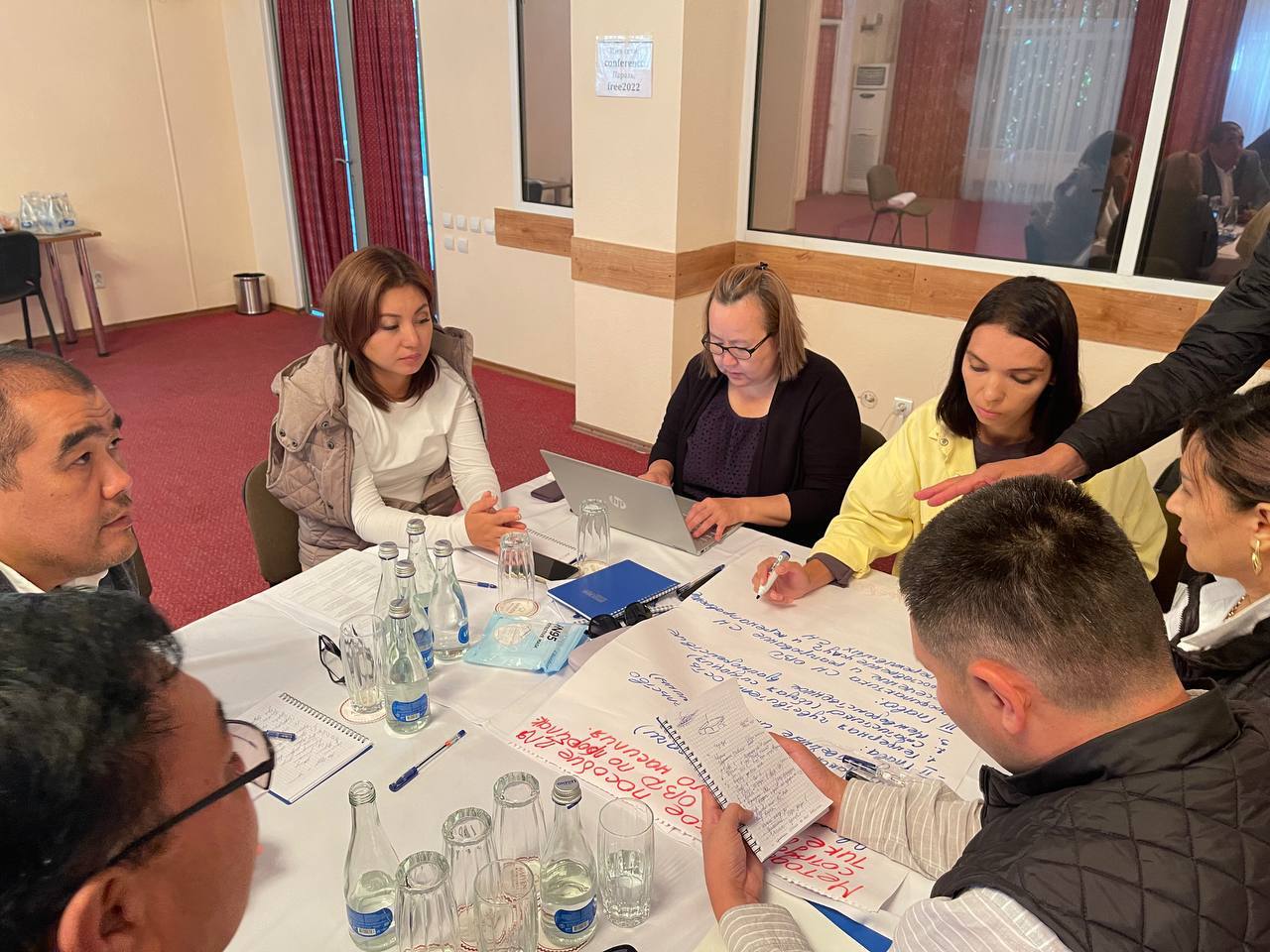Police Academy of Ministry of Internal Affairs of the Kyrgyz Republic is a platform for reinforcing police training courses to address violence against women and children.
September 1, 2022

On August 26-28, the United Nations Development Program and the leadership of the Academy of the Ministry of Internal Affairs of the Kyrgyz Republic (MoI KR) conducted a field training of the Police Academy Working Group to develop a training course on preventing and responding to violence against women and children based on international best practices.
The training was organized as part of the SDG Partnership to address GBV project with the support of the UNDP Seoul Policy Center.
The working group of Police Academy continues its work on further improving the professional training of faculty staff of Police Academy to address gender-based violence, taking into account the successful experience of such countries as the Republic of Korea (South Korea) and the Republic of Kazakhstan (RK). Tulkinbaev Nurlan Akkalashevich was one of the trainers, he is an international expert, the head of the chair of Kostanai Police Academy of RK named after Shyrakbek Kabylbaev, Candidate of Pedagogical Sciences, Associate Professor.
The training included theoretical and practical sessions on strengthening the practice-oriented approaches in police capacity building, the presentation of a methodological manual was developed with integration of best practices of the Republic of Korea and the Republic of Kazakhstan.
Presented training manual generated a professional interest among the participants represented by faculty staff of Police Academy and officers of central apparatus of MoI KR. The issues of legal norms regulating the activities of law enforcement agencies of the Republic of Korea and Kazakhstan in the field of prevention and response to gender-based violence raised particular interest of the participants.
The participants of the training noted that in law enforcement practice of the Republic of Kazakhstan and the Kyrgyz Republic there are many common areas in response to violence against women and children, in this regard, the proposed approaches to improve the effectiveness are the same and correspond.
In the practical part of the training, an interactive role-playing exercise on the case "interrogation of an underage children subjected to violence" was conducted. The interrogation interviews were conducted by training participants who were in investigators, juvenile affairs inspectors (JAI) and experts’ groups.
This exercise had led literally to feel the psychological peculiarities of the process of preparation and conducting an interview, as well as the psychological state of a survivor of violence. During the role-play the legal peculiarities interviewing and the some errors were made in the process of building a dialogue with the underaged GBV survivor.
To reinforce the practical work, the participants made suggestions for applying the recommendations on application of Protocol of the National Institute for Child Health and Human Development (NICHD)*, which is used by law enforcement agencies in the Republic of Korea and Kazakhstan.
In addition, it was recommended to include a special section on the basics of child psychology into training manual, which would help police officers to improve techniques of interviewing minors, taking into account the knowledge of required language considering the cognitive development of the child.
During the training, international expert Tulkinbaeva N.A. shared his experience and lessons learnt on the introduction of best practices of the Republic of Korea into the training programs of law enforcement officers of the Republic of Kazakhstan addressing violence against women and children, the basic principles and approaches of its implementation in law enforcement practice.
The international expert also shared a novel methodology to assess the coordination work of GBV authorized bodies. A practical role-play on the role of state and non-governmental bodies, organizations and institutions working with GBV survivors once again justified the importance of interaction between all state bodies, local governments, non-governmental organizations, crisis centers and media in effective coordination of prevention, detection, response, provision of legal, medical and social, psychological assistance and rehabilitation in cases of gender-based violence.
Participants agreed that a GBV survivor needs a wide range of services, therefore, it is urgent to provide comprehensive assistance to everyone turned out to stay in such situation.
Gulsara Midinovna Alieva, project expert on gender and police capacity building, and Arzygul Mamayunusovna Dzhorobekova, the head of the working group - Deputy Head of the Academy, Doctor of Law, Professor, highly appreciated the fruitful work of training participants, they have expressed gratitude for constructive feedback and recommendations for the preparation of the content of the training manual and presented the next stages of the experts’ group work to develop the training course into Police Academy capacity building processes.

 Locations
Locations



